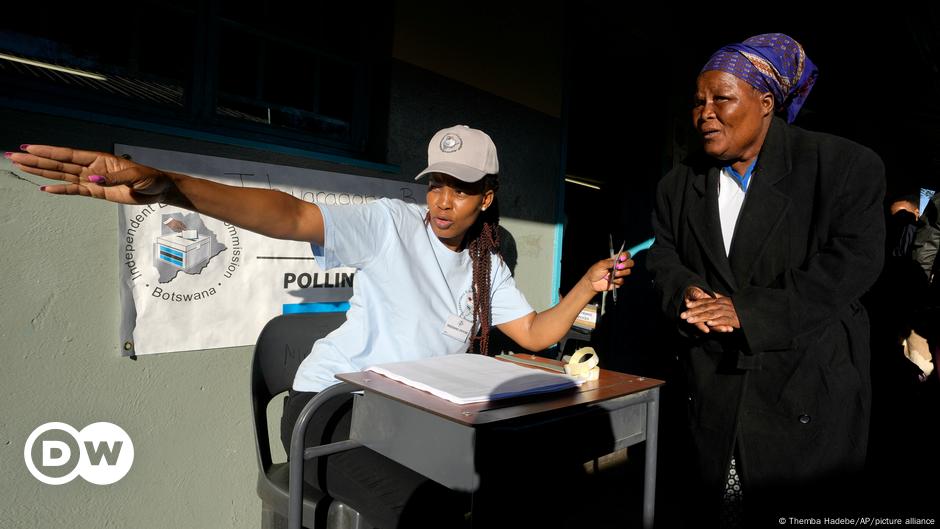In December 2019, Boris Johnson’s Conservative Party trounced the Labour Party led by Jeremy Corbyn, by winning 365 seats compared to Labour’s 203 in the UK Parliament. Much has changed since that time. The Conservatives have chosen three Prime Ministers: Boris Johnson (July 2019 to September 2022), the ill-fated Liz Truss who lasted a mere 50 days (6 September to 25 October 2022) and the current Rishi Sunak. Due to the consequences of economic disruption and political adjustments following exit from the European Union, the economic and social restrictions imposed by the Covid epidemic, trade disruption and energy prices rises caused by sanctions policy on the Russian Federation, failure to stem illegal immigration and to improve the failing health services, the government has suffered major crises. It has increased the level of taxation, which angers the rich, and concurrently introduced an ‘austerity’ programme, effectively cutting state welfare, which impoverishes the poor.
The changes in political leadership coupled to incoherent even chaotic policy shifts have led to a high degree of public distrust. In May 2024, the polling company Ipsos reported that 84 per cent of the population are ‘dissatisfied with the way the government is running the country’. In electoral contests at local level it has suffered significant reverses – in the local elections of 2024, the Conservatives lost 474 seats whereas Labour increased their total by 186 seats and the Liberal Democrats 104, peripheral parties and independents increased their number of seats by 184. The results constituted the Conservatives’ worst local government defeat since 1996. Predictions for the election to be held on 4 July 2024, based on aggregate public opinion polls, estimate that 41.9 percent cent of potential voters intend to vote Labour, 21.3 per cent Conservative, Reform UK (a newly formed Right wing party led by Nigel Farage) 15.4 per cent, Liberal Democrats 10.8 per cent and the Green Party 5.8 percent. (Financial Times poll tracker 22/23 June 2024). Separate polls, discussed below, forecast terminal decline for the Conservative Party.
The Alternatives
The spotlight then turns to the alternatives. Following the crushing defeat of the Labour Party leading to Jeremy Corbyn’s resignation, its new leader, Sir Keir Starmer, set about a major transformation of the Party. The objective was to shift the Party away from Corbyn’s leftist inclinations, thereby to capture the middle political ground. Corbyn had advocated more public ownership, had doubted the role of the Russian government in the poisoning of Sergei Skripal, had positively identified with the Palestinian cause, and had actively campaigned for the Campaign for Nuclear Disarmament. Consequently, under Starmer, prominent Party leaders associated with Corbyn were marginalized. Corbyn lost membership of the Parliamentary Labour Party over alleged antisemitism, he and others, were deselected from standing as electoral candidates. The Party focused on magnifying faults of government and personality politics took the centre stage. Labour projected itself as a competent ruling Party with prudent taxation policies; support for law and order and renewal of the national health service; in foreign policy, Britain was a country that the USA could rely on. Russia is condemned over its military presence in Ukraine, and increases in defence and NATO contributions are promised. As Starmer put it in a speech to workers at BAE Systems (the submarine builder) in Barrow in Furness, ‘My commitment to NATO and the UK’s nuclear deterrent… is unshakeable. Absolute. Total. The changed Labour Party that I lead knows that our national security always comes first’. Politically, the Party seeks support from business: the Shadow Chancellor (Rachel Reeves) announced that ‘the Labour Party today is the natural party of British business’ (Speech to Rolls Royce employes, Derby 28 May 2024). The Party seeks to maintain left wing support by introducing a tax on pupils attending private schools and it has promoted ideas about representation of workers on the boards of large companies. Labour is a national Party.
Labour projects itself as a Party in which one can trust.

Political Dealignment
Its electoral strategy is appeal to the middle ground and aversion to alienate any significant social group. In this the Party has had some success. It is no longer the traditional party of labour. Studies of polling intentions by social class in the period June to October 1923, show a common cross class appeal of both the Labour and Conservative Parties. As shown in Figure 1, each Party has the same proportion of electoral support in each social class. These figures reflect the dealignment of social class as a foundation of electoral politics. Like the Conservative Party, Labour appeals positively to a wide array of social groups. To confirm its national appeal, the Union Jack figures as a backcloth to Starmer’s lectern and appears on Labour’s poster advertising.
Figure 1. Social Base of Electors intending to Vote in UK Elections 2023
Source: Ipsos UK. Poll of polls June-October 2023. Cited by J. Curtice, Political Studies Association, Political Insight. December 2023. p.9.
The Electoral Balance
The political commentariat widely predicts a Starmer victory: the question is, by what kind of majority? A landslide victory is widely predicted. A significance threat for the Conservative Party has been the reemergence, in June this year, of Nigel Farage as leader and Parliamentary candidate of the Reform Party. Farage previously had led the UK Independence Party (UKIP) which successfully campaigned for leaving the European Union. It claims to be the only Party to ‘stand up for British culture, identity and values’ (Nigel Farage, ‘We Want Our Country Back’, June 2024). Currently, Reform seeks to displace the Conservatives and proposes itself as the major challenger to the Labour Party. Its programme envisages measures to reduce taxation, to curb illegal immigration; it proposes to reduce foreign aid but boost defence spending to 3 per cent of GDP, to modernize the national health service and utilize the private health sector, to strengthen the family, to replace the House of Lords with a more democratic second chamber, and to leave the European Convention on Human Rights. All these proposals are calculated to attract Conservative votes. Indeed, one opinion poll (Survation) on 17 June predicted that the Conservative Party would only win 72 seats compared to Labour’s 456 in the coming election, another poll (Savanta) declared that the Conservatives would only win 53 seats.
Such an overwhelming victory is not assured. What then could go wrong? Opinion polls record only those who have chosen, and intend to vote for, a candidate. Many remain uncertain and, confronted with the possibility of a major Labour victory, they may reluctantly back a Conservative candidate as the least bad choice. Others doubt Starmer’s political capability: for example, only 18 per cent of respondents consider him to be a ‘capable leader’, some 20 per cent believe that he has an ‘understanding of Britain’s problems’ and 72 per cent regard him as ‘out of touch’ with public opinion (IPSOS Political Monitor 18 April 2024). Party organisation is crucial in getting supporters to vote. The Labour Party is very much less well financed than the Conservatives who attract many more wealthy political supporters. Labour’s internal infighting with Corbyn’s supporters has led to the exit from the Party of many activists capable of ‘getting out the vote’; Corbyn himself is an independent candidate opposing the official Labour candidate.
The disenchantment with personality politics, avoidance of major issues such as immigration and wars in Palestine and Ukraine, have prompted the rise in voting for minor parties and ‘independent’ candidates. The Reform Party will clearly take many Conservative votes, though very few seats. The Labour vote may suffer from non-voting of those who see the Starmer leadership as anodyne, indecisive with no firm political priorities: he was a member of Corbyn’s shadow cabinet whose policies he now condemns. As noted above, in recent elections, minor parties and individuals succeeded in increasing their numbers in similar proportion to the Labour Party. In the Rochdale by-election of February 2024, George Galloway’s Workers’ Party of Britain came first with 39.7 per cent of the votes cast and was followed by an Independent with 21.3 per cent, the Conservatives received only 12 per cent. In such cases, minority groups, such as Muslims, if geographically clustered can make a significant difference to local election outcomes. Such minor parties will not win many seats but their votes affect the rankings of the top parties and thus distort somewhat the voting predictions of the opinion polls.
What Next?
The evidence points to Labour’s Keir Starmer as the winner, but with a smaller majority than sometimes predicted. Unlike the recent elections in the European Union, there is no significant electoral challenge to the established political elites. Opposition will fall to the fringe political parties and groups. Nigel Farage breaks ranks by asserting that the enlargement of the European Union and the expansion of NATO have provoked the Ukrainian-Russian conflict. Geoge Galloway condemns the West as a major cause of foreign wars and proposes to leave NATO. The UK may have a change of political leadership under Labour but there will be no significant shift in political direction.

 By Russia in Global Affairs | Created at 2024-10-29 18:21:54 | Updated at 2024-10-30 07:29:14
4 months ago
By Russia in Global Affairs | Created at 2024-10-29 18:21:54 | Updated at 2024-10-30 07:29:14
4 months ago




